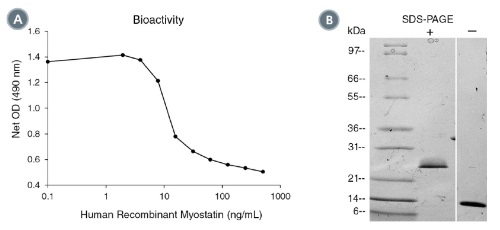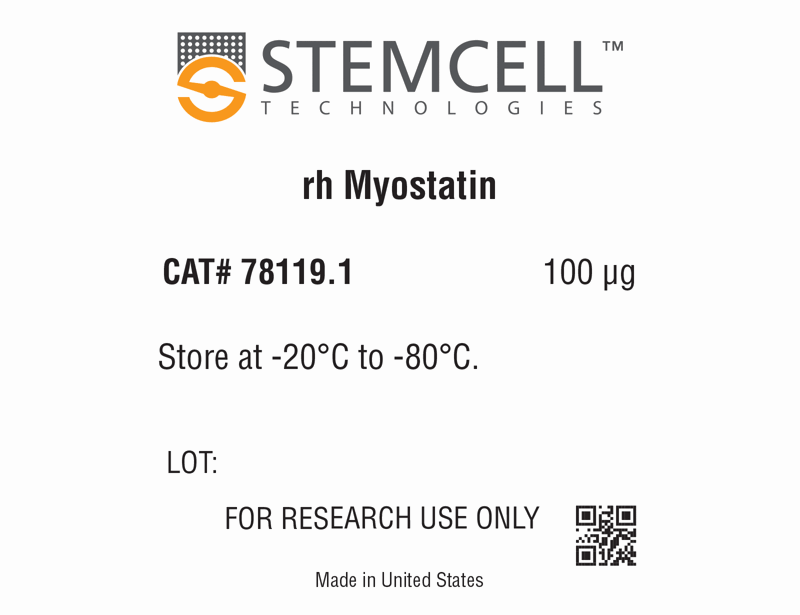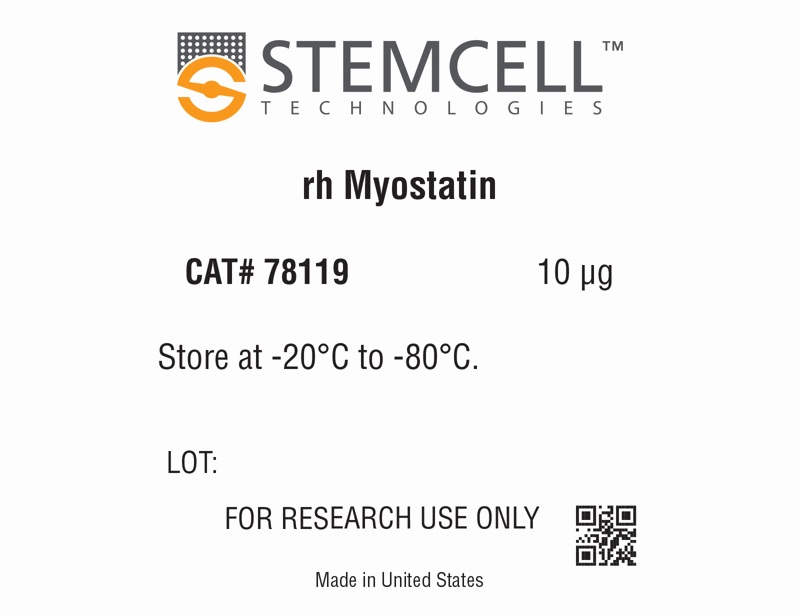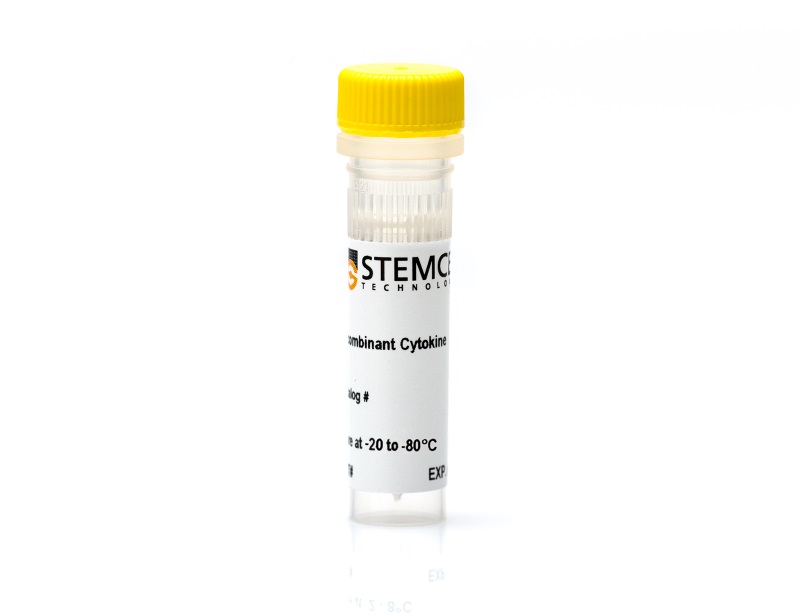Human Recombinant Myostatin
Myostatin
概要
Myostatin is a member of transforming growth factor beta (TGF-β) superfamily that signals by binding to activin type II receptor, resulting in the recruitment of either ALK3 or ALK4 coreceptor, and activation of SMAD2/3 (Kondás et al.). It is released by myocytes and inhibits muscle growth and ability to regenerate (Lee & Lee). Myostatin appears to affect the lipid catabolic metabolism of adipocytes and inhibits preadipocyte differentiation, as demonstrated in the 3T3-L1 cell line (Li et al.).
Subtype
Cytokines
Alternative Names
GDF-8, Growth differentiation factor 8, MSTN78
Cell Type
Mesenchymal Stem and Progenitor Cells
Species
Human
Area of Interest
Stem Cell Biology
Molecular Weight
12.4 kDa monomer, 24.8 kDa dimer
Purity
≥ 95%
技术资料
| Document Type | 产品名称 | Catalog # | Lot # | 语言 |
|---|---|---|---|---|
| Product Information Sheet | Human Recombinant Myostatin | 78119, 78119.1 | All | English |
| Safety Data Sheet | Human Recombinant Myostatin | 78119, 78119.1 | All | English |
数据及文献
Data

(A) The biological activity of Human Recombinant Myostatin was tested by its ability to inhibit proliferation of MPC-11 cells. Cell viability was measured after 66 hours using a fluorometric assay method. The EC50 is defined as the effective concentration of the growth factor at which cell viability is at 50% of maximum. The EC50 in the above example is 12 ng/mL. (B) 1 μg of Human Recombinant Myostatin was resolved with SDS-PAGE under reducing (+) and non-reducing (-) conditions and visualized by Coomassie Blue staining.



